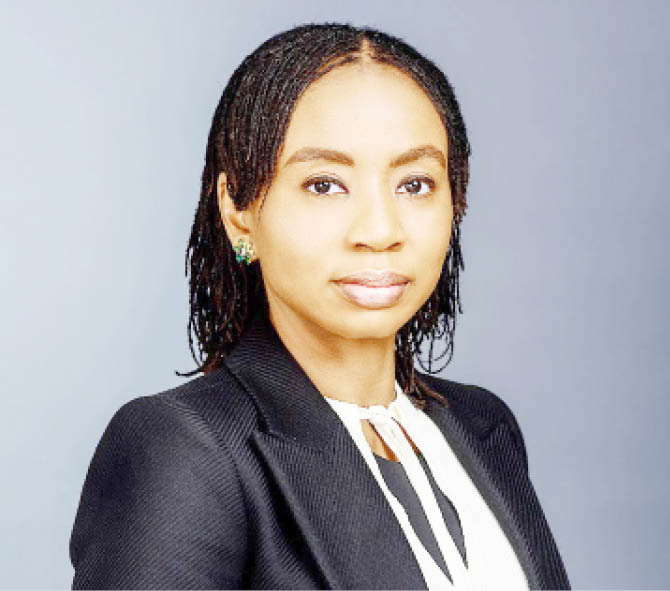Ms. Omolola Oloworaran is the Director-General of the National Pension Commission (PenCom). In this interview, she highlights plans to bring in more states into the contributory pension scheme and other plans for the sector.
One of the challenges of the Contributory Pension Scheme (CPS) is that many states are not subscribing to it. How would you address this issue?
The issue of states not keying into the contributory pension scheme has been on the front burner for a long time. I think only about seven states so far out of 36 states have keyed into the scheme.
However, what I can tell you now is that the narrative is gradually changing and I am pleased to announce that Abia State has recently joined the scheme. Our plan is that in the coming year, we will have more states join as we continue to advocate the importance of joining the scheme.
- High expectations as 32 states budget N22 trillion for 2025
- FIRS parleys security agencies on revenue generation
Another critical issue is delay in payment of retirement benefits, especially accrued rights. How are you tackling this challenge?
Yes, retirees from treasury-funded ministries, departments, and agencies (MDAs) had faced delays since March 2023. However, progress has been made in recent weeks, with the federal government disbursing N44 billion under the 2024 budget appropriation to settle accrued pension rights.
Moving forward, we have also put in place initiatives that we are collaborating with the federal government to implement. We want to institutionalise a sustainable solution, ensuring retirees get their benefits as and when due.
The commission is currently seeking approvals for a plan designed to prevent future delays, ensuring that retirees access their benefits promptly.
We want to ensure that this sort of delay never happens again. Once you retire, you get your benefits as and when due.
The pension sector has experienced steady assets growth, what do you think is responsible for the consistent growth
The total pension fund assets under the Contributory Pension Scheme (CPS) have reached N21.92 trillion as of October 2024.
This is attributed to contributions from 10.53 million registered participants. It is even expected to hit N22 trillion by the end of the year.
The growth is part of the commission’s commitment to safeguarding contributors’ savings through prudent management and sustainable growth practices.
The numbers you see here reflect our unwavering commitment to fund safety, prudent management, and sustainable growth.
Does inflation, naira devaluation impact pension growth?
The economic realities of 2024 and the preceding years have presented unique challenges. High inflation, devaluation of the naira, and the lingering effects of unorthodox monetary policies have eroded the real value of pension funds, thus impacting the purchasing power of contributors.
But in response to these economic pressures, PenCom has initiated a comprehensive review of its investment regulations. The reforms aim to enhance the resilience of pension funds by prioritising investments in inflation-protected instruments, alternative assets, and foreign currency-denominated investments.
Our goal is to safeguard contributor savings and ensure resilience against future economic volatility
What are your plans to expand the scheme, especially the micro pension plan?
Expanding pension coverage also remains a top priority. The commission plans to leverage technology to boost participation in its advanced Micro Pension Plan, particularly targeting informal sector workers.
This aligns with our vision of inclusive growth and financial stability for all. We aim to make it easier for everyday Nigerians to save for retirement.
The Nigeria Police Force has consistently expressed its desire to leave the scheme. What are your thoughts?
So the police are fighting for a righteous course, but how you go about fighting a righteous cause should be something that is appropriate.
Whilst the course is righteous, the solution is not exiting the Contributory Pension Scheme, because what we’ve seen in the past is mismanagement of funds for police functions in particular.
What the CPS does is it insulates police funds from mismanagement and ensures that funds are safe and well managed.
We will continue to engage in that regard on how to ensure that the police stay within the CPS scheme and also engage on how perhaps they can get better benefits and remain within the scheme because remaining in the scheme is the best thing for the police themselves and the best thing for Nigeria as a whole.
Is there a window for Nigerians in the diaspora to contribute to the scheme?
We want to see how we can open up the Contributory Pension Scheme to Nigerians in diaspora and we are working on the guidelines.
I think before the end of the first quarter of next year, we should be able to release some guidelines to guide the contributions for Nigerians in diaspora.
What are your plans to expand the scheme, especially the micro pension plan?
Expanding pension coverage also remains a top priority. The commission plans to leverage technology to boost participation in its advanced Micro Pension Plan, particularly targeting informal sector workers.
This aligns with our vision of inclusive growth and financial stability for all. We aim to make it easier for everyday Nigerians to save for retirement.

 Join Daily Trust WhatsApp Community For Quick Access To News and Happenings Around You.
Join Daily Trust WhatsApp Community For Quick Access To News and Happenings Around You.


